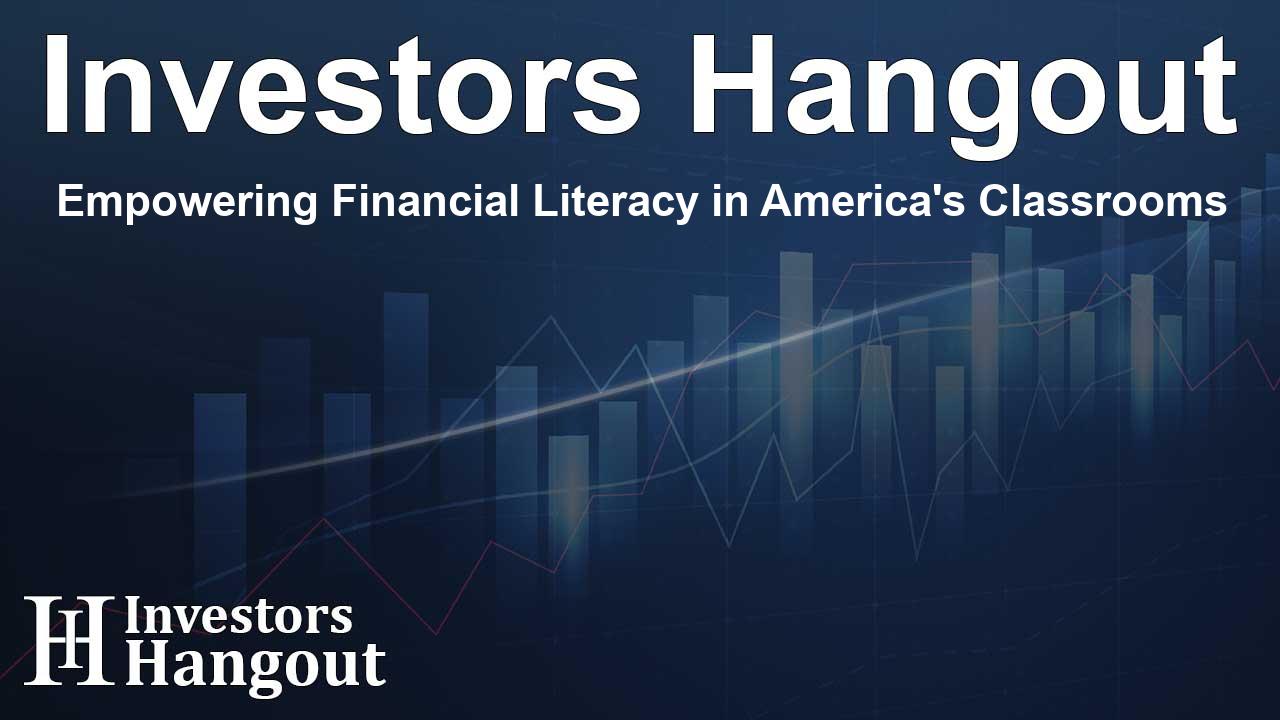Empowering Financial Literacy in America's Classrooms

Empowering Financial Literacy in America's Classrooms
With shifts in economic policies looming and financial challenges impacting families, the month of October serves as a pivotal time for high school students and educators throughout the nation. During this time, they have access to a robust array of financial education tools designed to enlighten them about their economic landscape. These resources are intended to support better personal, family, and civic decision-making throughout their lives.
Celebrating Economic Education Month
The Council for Economic Education (CEE) introduces a series of engaging activities, teaching resources, and advocacy toolkits. This initiative aims to empower students, teachers, and parents to advocate for legislative support from local officials and educational institutions, thereby ensuring that every young person has access to indispensable economic lessons now and in the years to come.
Inspiring Future Generations
“Together, we can create a future where everyone has the tools to navigate the complexities of the economy with confidence,” expressed Nan J. Morrison, CEE’s president and CEO. Her remarks highlight the importance of comprehensive economic education as a cornerstone of student success.
Current Status of Economic Education
Currently, only 28 states mandate economics courses for high school graduation. This statistic underscores a significant gap, as for many young people, economics education is restricted to those pursuing higher education. This disparity emphasizes the need for broader access to economic literacy, ensuring all students acquire the knowledge essential for making informed decisions, rather than just a select few.
Highlights of Economic Education Month
This month features various initiatives, including:
- Educational Resources: Free lesson plans, dynamic games, and multimedia materials are available for download, fostering an interactive learning experience.
- Events: Participants can engage in virtual and local workshops focused on critical economic topics, providing platforms for sharing insights and experiences.
- Advocacy Toolkits: These toolkits aim to mobilize teachers, families, and their communities to actively encourage local and state legislators to prioritize the incorporation of economic education in school curricula.
- Social Media Campaign: A student-produced video series highlights youth engagement with economic experts, driving inspiration and awareness across digital platforms.
Importance of Economic Education
Morrison emphasizes, “Economic education is vital for decision-making at any age and any stage in life.” While the efforts of certain states and schools to incorporate economic education into their programs are commendable, they are, regrettably, insufficient. CEE encourages teachers and students alike to leverage insights from Economic Education Month's resources to enhance their financial knowledge and to motivate policymakers to strengthen their commitment to economic literacy initiatives.
Getting Involved
For more resources and opportunities to engage with this initiative, visit EconEdMonth.org. Schools, organizations, and communities are invited to host their events, and participants can share their experiences using the hashtag #EconEdMonth on social media, inspiring others to join the cause.
About the Council for Economic Education
The mission of the Council for Economic Education (CEE) is to equip K–12 students with crucial knowledge regarding personal finance and economics. This mission is carried out through advocacy for economic education requirements in every state and by offering extensive training and resources. CEE engages over 40,000 educators nationally through its extensive affiliate network and reaches more than 4 million students annually. Furthermore, CEE facilitates national competitions that introduce high school students to vital career skills, reinforcing the importance of economic awareness and literacy.
Frequently Asked Questions
What is Economic Education Month?
Economic Education Month is an initiative aimed at promoting financial literacy among students and teachers, providing resources and advocacy to enhance economic education.
Who benefits from the programs during Economic Education Month?
High school students, educators, and families benefit from the various resources and events, aimed at improving economic understanding in the community.
How can schools participate in this initiative?
Schools can participate by hosting events and using the provided resources to raise awareness about the importance of economic education.
What types of resources are available?
Participants can access free lesson plans, interactive games, multimedia content, and advocacy toolkits from the Council for Economic Education.
Why is economic education important?
Economic education is essential for empowering individuals to make informed financial decisions throughout their lives, contributing to their overall well-being and success.
About The Author
Contact Dylan Bailey privately here. Or send an email with ATTN: Dylan Bailey as the subject to contact@investorshangout.com.
About Investors Hangout
Investors Hangout is a leading online stock forum for financial discussion and learning, offering a wide range of free tools and resources. It draws in traders of all levels, who exchange market knowledge, investigate trading tactics, and keep an eye on industry developments in real time. Featuring financial articles, stock message boards, quotes, charts, company profiles, and live news updates. Through cooperative learning and a wealth of informational resources, it helps users from novices creating their first portfolios to experts honing their techniques. Join Investors Hangout today: https://investorshangout.com/
The content of this article is based on factual, publicly available information and does not represent legal, financial, or investment advice. Investors Hangout does not offer financial advice, and the author is not a licensed financial advisor. Consult a qualified advisor before making any financial or investment decisions based on this article. This article should not be considered advice to purchase, sell, or hold any securities or other investments. If any of the material provided here is inaccurate, please contact us for corrections.
